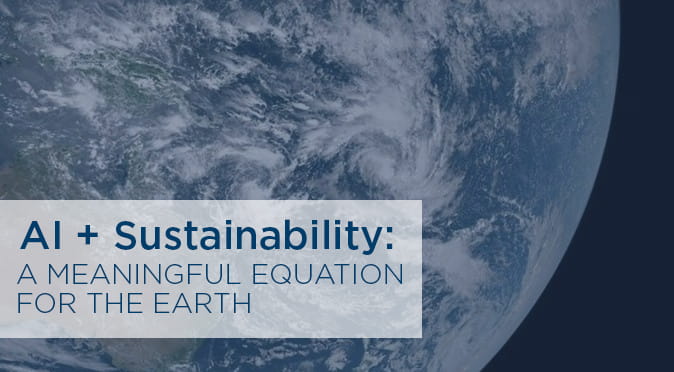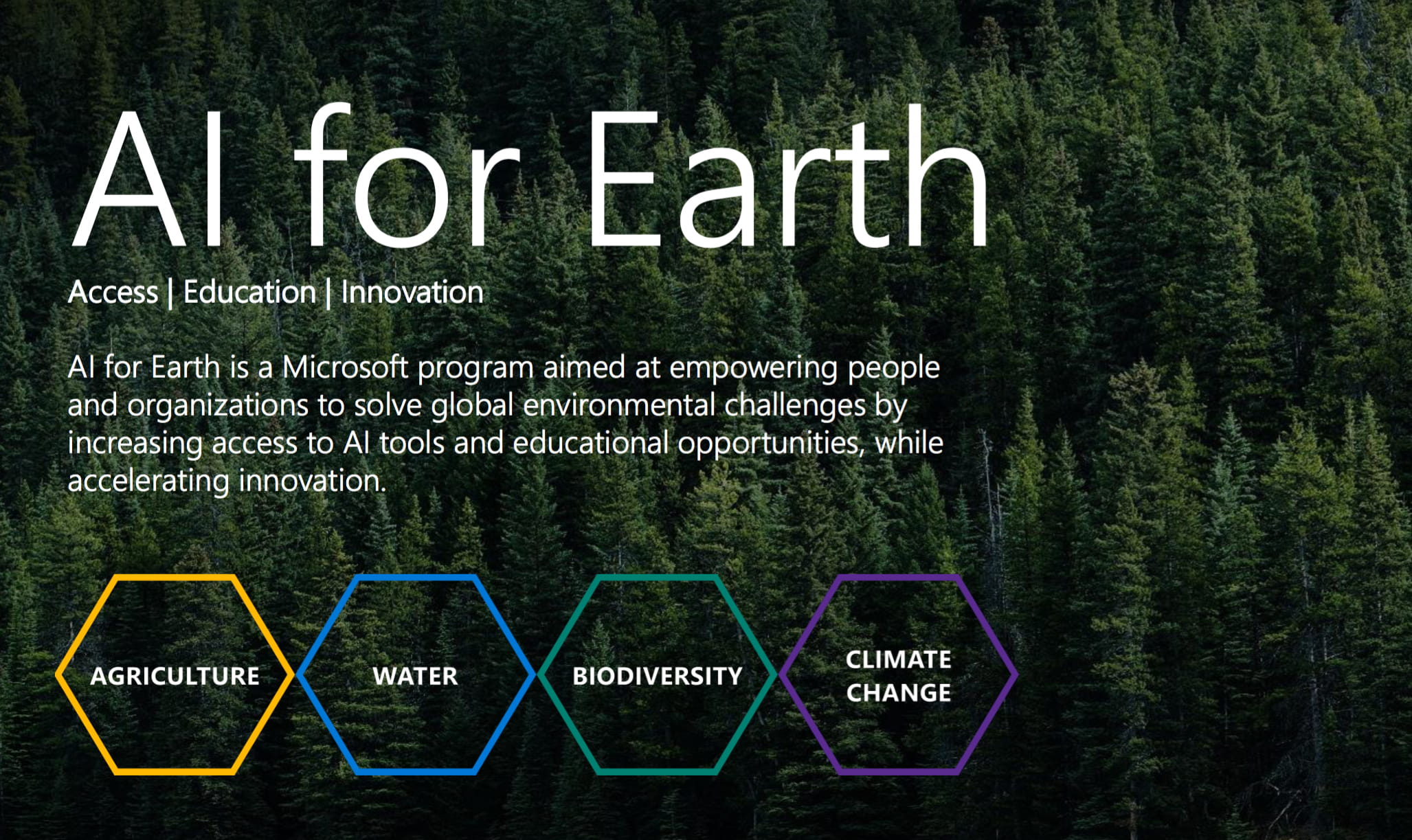
June 27, 2018 | InBrief
AI + sustainability: A meaningful equation for the Earth
AI + sustainability: A meaningful equation for the Earth
By now you’ve likely heard the buzz around machine learning (ML) and artificial intelligence (AI).These technologies are poised to transform and improve countless aspects of our daily lives, from driver-less cars, to smart energy meters, to product recommendations on Amazon. At West Monroe, as business consultants and deep technologists, we keep a close pulse on how new advances in machine learning can help our clients attain sustained business value. We also assess which new technologies and methods are emerging that can be applied across the industries we serve. For example, how can we implement a product recommendation model, like Netflix’s, to help our retail clients predict a customer’s next purchase? Or how can we integrate machine learning in the healthcare payer space to reduce expenses and improve member experience? These are just a few examples of the types of questions we ask ourselves to serve our clients with cutting edge technologies.
What caught our attention recently however was less about innovative algorithms or machine learning platforms, but rather the innovative application of those technologies for a client that all of us work for – the Earth! Specifically, we are referring to Microsoft’s AI for Earth program, a program whose goal is to “use AI technology to amplify human ingenuity and advance sustainability around the globe.” Originally announced in July 2017, Microsoft’s AI for Earth has received renewed focus this year as Microsoft announced it would expand and extend a $50 million investment into the program for research grants for eligible organizations. The grants allow eligible individuals and organizations to leverage Microsoft’s Azure cloud computing resources, and Esri’s geographic information system (GIS) software for the purposes of research into pressing global conservation issues. The thinking is that research programs using these advanced data science, spatial analysis, and visualization tools coupled with powerful enough technologies to store and organize massive amounts of data can help solve pressing global issues in agriculture, biodiversity, climate change, and water. Already, grants have been offered to a range of research programs in countries around the world, including the USA, Canada, Romania, Macedonia, Japan, and many others.
With this continued investment in AI for Earth we are seeing a major corporation and world leader in technology use its platforms and knowledge for the betterment of society. At West Monroe, we understand the value of leveraging technology and analytic methods for problem solving, and view Microsoft as an example of how skills and technologies that are normally applied to business problems can also be applied to conservation efforts. Microsoft’s example is an inspiration, and we look forward to seeing new insights and advances derived from AI for Earth. We at West Monroe are also engaged in leveraging data and technology to address sustainability issues for our own clients and communities, as these types of initiatives reflect the core values of our firm. Examples of work we have done in the space include carbon footprint analysis, greenhouse gas emissions measurement, and rooftop solar.
Additionally, our Sustainability team identifies opportunities to create further value for our clients by articulating and quantifying the environmental and social benefits of our engagements, such as carbon reductions and energy savings. We are excited to continue playing an influential role in solving these pressing issues. Perhaps through the collective efforts of organizations and use of innovative technologies we may be able to arrive at a solution to the globe’s most pressing challenges.
